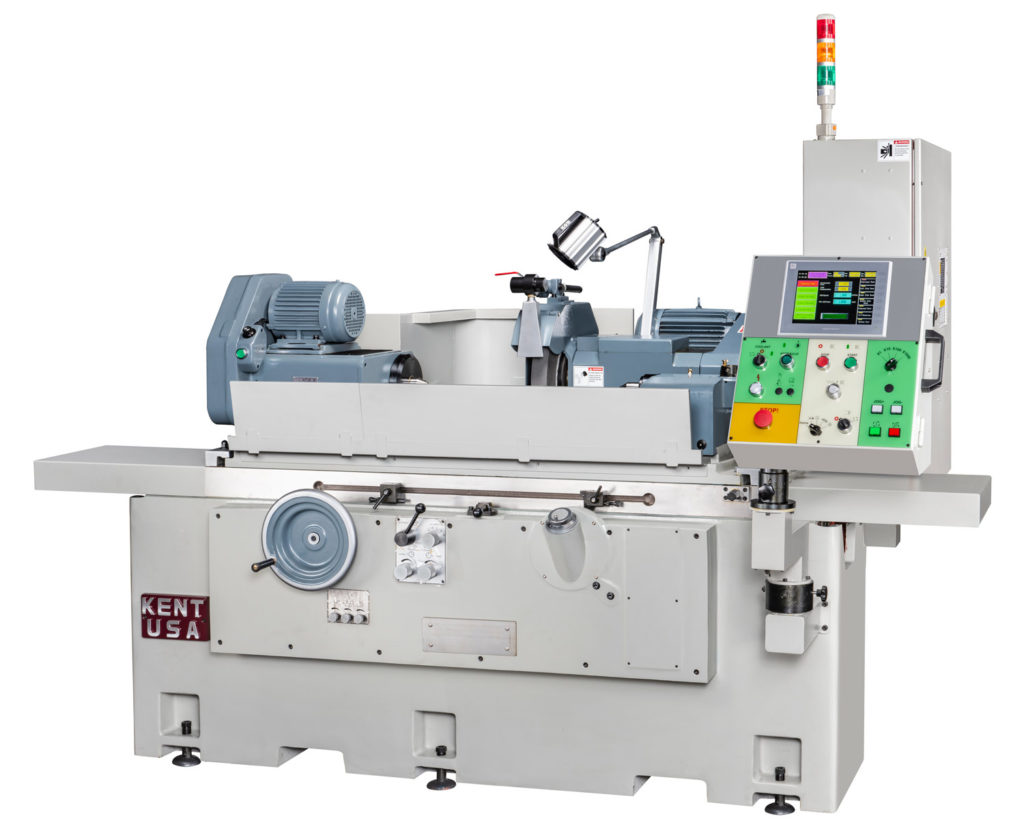Introduction to Cylindrical Grinding
 Cylindrical grinding is one of the oldest machining technologies. Though credit for its invention remains a bit fuzzy, most attribute the development of the first production grinding machine to Charles Norton (ironically, not the same Norton of grinding wheel fame). He worked at Brown and Sharpe and was tasked by company founder Joseph Brown to refine the “universal grinding machine” he had been struggling with for some time.
Cylindrical grinding is one of the oldest machining technologies. Though credit for its invention remains a bit fuzzy, most attribute the development of the first production grinding machine to Charles Norton (ironically, not the same Norton of grinding wheel fame). He worked at Brown and Sharpe and was tasked by company founder Joseph Brown to refine the “universal grinding machine” he had been struggling with for some time.
Evolution and Importance of Cylindrical Grinding
Since that time, cylindrical grinding has evolved into the go-to method for producing extremely precise round components such as shafts, mandrels, bearing journals, and core pins. It also enables the creation of formed shapes and contours on a wide variety of turned parts.
The Rise of Hard Turning and CNC Lathes
With all the talk of hard turning and the availability of increasingly complex, capable, and highly accurate CNC lathes, it’s easy to wonder if cylindrical grinding is going the way of cam-actuated screw machines and high-speed steel tool bits.
The Challenges of Grinding
Some might welcome that day. After all, grinding has always been seen as a bit of a black art:
- Wheel Selection: With various grits, grains, and bonds to consider.
- Tolerance Challenges: Extreme tolerances to be held.
- Workpiece Hardness: Workpieces hardened to the very edge of machinability.
- Feeds and Speeds: Often determined more by gut feeling than scientific methods.
Grinding’s Future and its Irreplaceable Role
Despite these challenges, grinding isn’t going away anytime soon, no matter how advanced lathe technology becomes. Some parts are simply too difficult or too accurate to machine anywhere else.
Advancements in Grinding Technology
Grinding doesn’t have to be difficult or rely on tribal knowledge and best guesses. Recent developments in machine tool and control technology have brought grinding success within the reach of virtually any job shop or manufacturing company, regardless of their experience level.
- Example: Kent USA’s KUG-2706H NC Cylindrical Grinder
- One excellent example of this is Kent USA’s KUG-2706H NC Cylindrical Grinder. It offers:
- Load Capacity: 154 lbs. between centers.
- Maximum Grinding Diameter: 10.6 inches.
- Maximum Grinding Length: 23.6 inches.
- Versatile Cycles: A variety of easy-to-use plunge and feed cycles.
There’s little this machine can’t handle.
Bringing Grinding In-House
Maybe you’ve been outsourcing parts to a specialty shop and have grown tired of long lead times and high prices. Perhaps you’ve tried hard turning with limited success. Whatever the case, there’s no reason not to bring your grinding work in-house. It’s not as difficult or mysterious as you might think, and chances are excellent it will lead to additional work.
Cylindrical grinding is alive and well. It remains a vital machining process for manufacturing companies. Whatever happens in the world of CNC lathes and hard turning, cylindrical grinding will always have its place.
Share this article:



